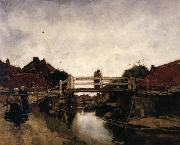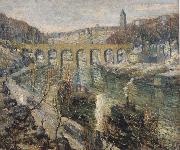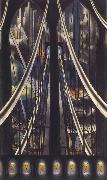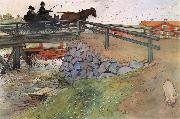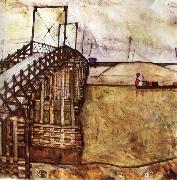Wholesale Oil Painting No Minimum |
|||||||||||
|
|
|||||||||||

|
|||||||||||
|
|
|
||||||||
Jacobus Hendrikus MarisDutch Painter , 1837-1899 |
||||||||
|
|
||||||||
The Bridge
The Bridge Painting ID:: 31853 |
mk76
painted in 1885
Oil on canvas
44 3/8x54 3/8in
mk76 painted in 1885 Oil on canvas 44 3/8x54 3/8in |
|||||||
|
|
||||||||
Ernest Lawson1873-1939 Ernest Lawson Galleries Ernest Lawson (March 22, 1873 ?C December 18, 1939) was a Canadian-American painter and a member of The Eight, a group of artists which included the group's leader Robert Henri, Everett Shinn, John Sloan, Arthur B. Davies, Maurice Prendergast, George Luks, and William J. Glackens. Lawson was born in Halifax, Nova Scotia. Though Lawson mostly painted landscapes, he also did some realistic urban scenes which were shown at the 1908 exihibition of The Eight. His painting style is heavily influenced by Impressionism, especially the style of John Henry Twachtman, Alfred Sisley, and J. Alden Weir. Lawson exhibited as a member of the Canadian Art Club from 1911 to 1915. He died in Miami Beach, Florida in 1939. |
||||||||
|
|
||||||||
|
|
The Bridge
The Bridge Painting ID:: 39762 |
mk151
1912
mk151 1912 |
||||||
|
|
||||||||
John sloanAmerican Ashcan School Painter, 1871-1951 American painter and etcher, b. Lock Haven, Pa. He studied at the Pennsylvania Academy of the Fine Arts and worked for 12 years as an illustrator on the Philadelphia Inquirer and Philadelphia Press. In 1905 he went to New York City, where he worked as an illustrator. A member of the Eight, he was active in organizing the Society of Independent Artists and was its president from 1918. Long a popular teacher at the Art Students League of New York City, he was elected president in 1930. His scenes of city life and his nude studies are in leading museums throughout the United States. Characteristic are McSorley's Bar (Detroit Inst. of Arts); Renganeschi's, Saturday Night (Art Inst., Chicago); Wake of the Ferry (Phillips Memorial Gall., Washington, D.C.); and Nude with Nine Apples (Whitney Mus., New York City). |
||||||||
|
|
||||||||
|
|
The Bridge
The Bridge Painting ID:: 39767 |
mk151
1920-22
mk151 1920-22 |
||||||
|
|
||||||||
Carl LarssonSwedish Realist Painter, 1853-1919 Swedish painter, illustrator and printmaker. He came from a poor family and studied (1866-76) at the Konstakademi in Stockholm, supporting himself throughout this period. From 1871 to 1878 he contributed illustrations to the comic journal Kaspar and the Ny illustrerad tidning. From 1875, for several decades, he was a prolific book illustrator, his most renowned work in this field being his drawings for Föltskärns beröttelser ('The Barber-surgeon's tales'; pubd 1883-4) by Zacharius Topelius, and the Rococo-inspired watercolours for the Samlade skaldeförsök ('Collected attempts at poetry'; pubd 1884) by the 18th-century Swedish author Anna Maria Lenngren. |
||||||||
|
|
||||||||
|
|
The Bridge
The Bridge Painting ID:: 41655 |
mk163
Watercolor
1897
mk163 Watercolor 1897 |
||||||
|
|
||||||||
Egon Schiele1890-1918 Austrian Egon Schiele Gallery Egon Schiele (12 June 1890 ?C 31 October 1918) was an Austrian painter, a protege of Gustav Klimt, and a major figurative painter of the early 20th century. Schiele's body of work is noted for the intensity and the large number of self-portraits he produced. The twisted body shapes and the expressive line that characterize Schiele's paintings and drawings make the artist an early exponent of Expressionism, although still strongly associated with the art nouveau movement (Jugendstil). The most important collection of Schiele's work is housed in the Leopold Museum, Vienna. In 1907, Schiele sought out Gustav Klimt. Klimt generously mentored younger artists, and he took a particular interest in the gifted young Schiele, buying his drawings, offering to exchange them for some of his own, arranging models for him and introducing him to potential patrons. He also introduced Schiele to the Wiener Werkstätte, the arts and crafts workshop connected with the Secession. In 1908 Schiele had his first exhibition, in Klosterneuburg. Schiele left the Academy in 1909, after completing his third year, and founded the Neukunstgruppe ("New Art Group") with other dissatisfied students. Sitzender weiblicher Akt, 1914Klimt invited Schiele to exhibit some of his work at the 1909 Vienna Kunstschau, where he encountered the work of Edvard Munch, Jan Toorop, and Vincent van Gogh among others. Once free of the constraints of the Academy's conventions, Schiele began to explore not only the human form, but also human sexuality. At the time, many found the explicitness of his works disturbing. |
||||||||
|
|
||||||||
|
|
The Bridge
The Bridge Painting ID:: 47966 |
mk189
1913 mk189 1913 |
||||||
|
|
||||||||
|
Egon Schiele 1890-1918 Austrian Egon Schiele Gallery Egon Schiele (12 June 1890 ?C 31 October 1918) was an Austrian painter, a protege of Gustav Klimt, and a major figurative painter of the early 20th century. Schiele's body of work is noted for the intensity and the large number of self-portraits he produced. The twisted body shapes and the expressive line that characterize Schiele's paintings and drawings make the artist an early exponent of Expressionism, although still strongly associated with the art nouveau movement (Jugendstil). The most important collection of Schiele's work is housed in the Leopold Museum, Vienna. In 1907, Schiele sought out Gustav Klimt. Klimt generously mentored younger artists, and he took a particular interest in the gifted young Schiele, buying his drawings, offering to exchange them for some of his own, arranging models for him and introducing him to potential patrons. He also introduced Schiele to the Wiener Werkstätte, the arts and crafts workshop connected with the Secession. In 1908 Schiele had his first exhibition, in Klosterneuburg. Schiele left the Academy in 1909, after completing his third year, and founded the Neukunstgruppe ("New Art Group") with other dissatisfied students. Sitzender weiblicher Akt, 1914Klimt invited Schiele to exhibit some of his work at the 1909 Vienna Kunstschau, where he encountered the work of Edvard Munch, Jan Toorop, and Vincent van Gogh among others. Once free of the constraints of the Academy's conventions, Schiele began to explore not only the human form, but also human sexuality. At the time, many found the explicitness of his works disturbing. The Bridge mk189 1913 |
||||||||
|
|
||||||||
|
Prev Next
|
||||||||
|
|
||||||||
|
Related Paintings to Egon Schiele :. |
||||||||
|
|
||||||||
|
CONTACT US |
